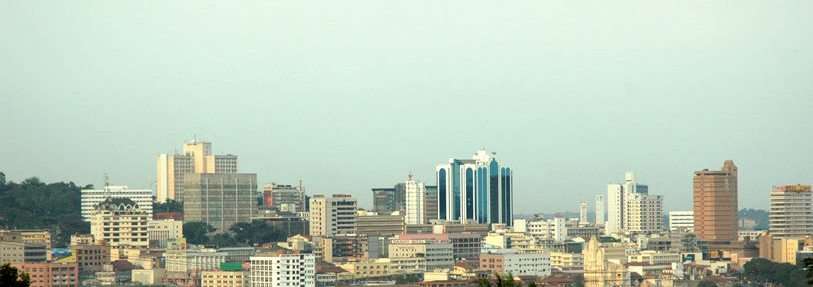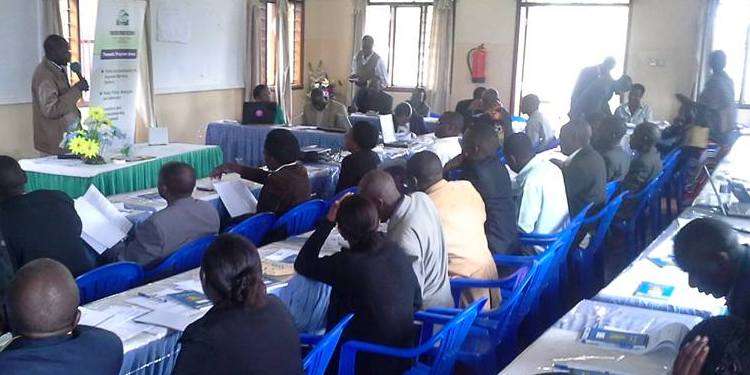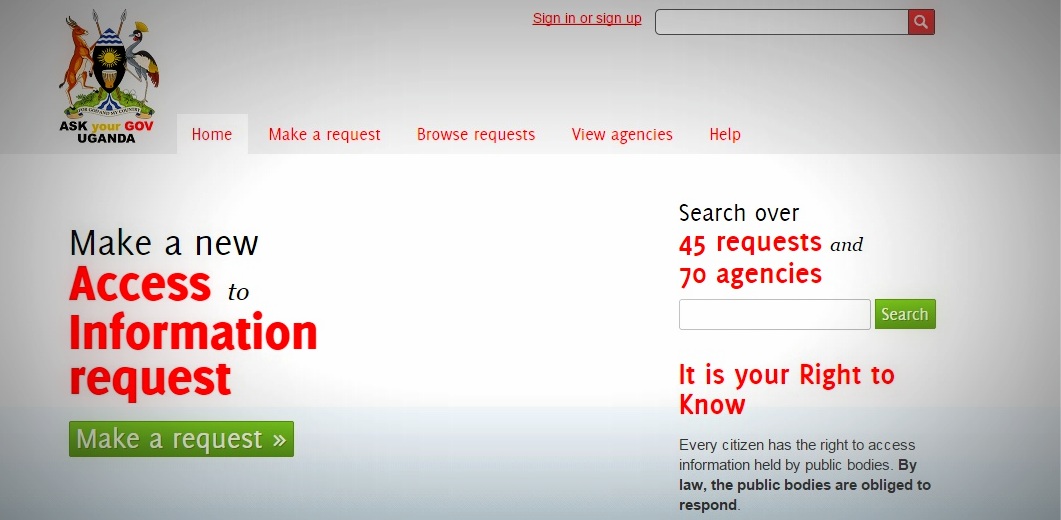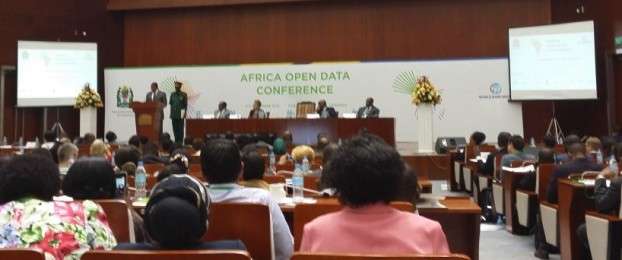By Ashnah Kalemera |
Two years since launching a project to provide high quality broadband through shared fibre infrastructure in Uganda, Google has now officially launched the WiFi based Project Link in the Ugandan capital, Kampala.
The internet giant has set up WiFi radios and supporting infrastructure at 120 locations within the city to provide citizens and small media businesses (SMEs) with high speed, affordable and reliable internet services “on the go” and at home.
The initiative aims to help local providers access high-capacity networks at a lower cost due to the opportunity to share infrastructure rather than construct their own. In partnership with the Kampala City Council Authority (KCCA) and property services companies among others, Project Link WiFi services are available at shopping malls, sports grounds, apartment complexes and office blocks.
“Google built the network and access points. We operate and monitor it,” said Ela Beres, a Google official. The ISPs and MNOs participating in the project are responsible for the quality of service, determining pricing and providing support to end users.
As at June 2015, Uganda had 36 licensed public service providers for voice and data services. Internet penetration stood at 37% and telephone penetration at 64%. In 2014, the country was ranked 15 out of 51 countries surveyed in the global internet affordability index. The index measures the affordability of internet access in each country as influenced by the extent of infrastructure deployment, adoption rates and existing policy and legislative frameworks.
According to Suzan Kitariko, Google Uganda Country Manager, since its launch in November 2013, Project Link has seen the laying of 800 kms of broadband fibre in Kampala and the surrounding areas of Entebbe and Mukono. This has enabled 13 local ISPs and mobile network operators to provide high quality broadband to an estimated two million people.
“Google Infrastructure has allowed us to focus on our core competences and cut on capital expenditure, thus reducing costs to benefit the consumer,” said Roger Sekaziga of Roke Telkom, one of the project’s partners. Roke Telkom has deployed unlimited Wifi spots at select restaurants and bars at speeds of up to 1mbs for UGX 18,000 (US$ 5) per month or UGX 1,000 (US$ 0.30) per day.
Speaking at the launch which was held at the Protea Hotel on December 3, Uganda’s Minister of Information and Communication Technology (ICT) John Nasasira said improved access to reliable and affordable broadband connectivity had the potential to positively impact Uganda’s health, education, agriculture and business sectors. He added that it would also contribute to government-citizen engagement. Nasasira called for more public-private partnerships in telecommunications infrastructure development to “boost uptake and narrow the digital divide in the country.”
Meanwhile, leveraging on Project Link, panoramic views of tourist and leisure sites in Kampala are now available via Street View. Work is underway to extend coverage to national parks. Project Link is also supporting the regulator, Uganda Telecommunications Commission and KCCA to draft guidelines for infrastructure sharing for all licensed operators.
Over the coming months, Project Link is expected to expand WiFi access to 300 other locations across the country. Since launching its first metro-fibre network in Kampala in 2013, Project Link has expanded to Ghana in West Africa, where it expects to build 1,000 kms of metro fibre.
Reflecting on ICT for Democratic Engagement in Uganda’s Rwenzori Region
By Ashnah Kalemera |
In the Rwenzori sub-region of western Uganda, Information and Communication Technology (ICT) tools have been key tools in promoting public accountability and improved service delivery. Through an ICT “convergence approach” that combines SMS, radio and online polling, Toro Development Network (ToroDev) has for the past five years promoted information and knowledge sharing for citizens’ engagement with their leaders on priority service delivery needs and concerns in the region.
ToroDev’s project, which is part of the ICT4Democracy in East Africa Network, has empowered local citizens in offline and online advocacy and engagement with duty bearers, trained radio journalists in reporting and promoting debate on accountability issues, facilitated quarterly accountability meetings between citizens and leaders, and supported the initiation of 15 civic groups in the region. The civic groups, also known as rural advocacy forums, consist of 80 members each, and are involved in citizen journalism and community mobilisation for the radio debates and accountability meetings.
Over the years, the project has seen increased levels of citizen participation and engagement. In 2014, each monthly advocacy forum meeting was attended by at least 50 members. Outcomes from the monthly meetings are discussed on radio talk shows. Meanwhile, 60 leaders at sub-county and parliamentary level participated in the deliberations and jointly with citizens drew up action plans, among them, the State Minister for Finance.
In western Uganda’s Rwenzori region, citizens’ participation on radio talk shows on governance issues through SMS, call ins, and social media grew from 304 in June 2014 to 4,835 by Nov 2014. See ICT4Democracy in East Africa Annual Review 2014.
Citizens have also gone on to leverage social media to engage in discussions on governance and service delivery. See for instance State of Service Delivery in Rwenzori Region, Orukurato, Rwenzori Journalists Forum and Listeners’ Forum Facebook with active membership pages.
However, at a national level participation of citizen in public affairs remains low. During the 2011 presidential elections, only 59% of registered voters cast their ballot. According to the 2013 Uganda National Household Survey, only 7% of households have a member that participates in governance at the local level, down from 10% in 2010.
The 2013 survey estimates that household participation in local governance in Western Uganda stands at 8.1% and the region boasts the highest proportion of citizens registered as voters (89%).
In the run up to the 2016 national elections, ToroDev convened regional stakeholders at a conference to reflect on the role of ICT in the electioneering processes. Uganda will hold local, parliamentary, and presidential elections in February 2016.
Speaking at the conference, Dr. Paschal Kabura, the director of Uganda Martyrs University Fort Portal campus, urged local citizens to take interest in staying informed of regional concerns that directly affect their livelihoods. “Voter apathy must be overcome,” he said, while calling for more active citizen participation in local governance processes through the use of ICT.
Discussions at the conference also included mainstreaming gender in governance processes. Goretti Amuriat from the Women of Uganda Network (WOUGNET) highlighted the need for building women’s capacity to participate in advocacy and accountability engagements, and for promoting awareness of gender issues at community level. She also stressed the need to consider women’s special needs such as child care facilities at local government consultation meetings, and suitable timing and conducive locations of accountability forums for both women and men.
Amuriat urged workshop participants to fight “biased cultural attitudes” in the region such as only men being leaders, what a man says being “right and final” and women being undermined due to their domestic responsibilities. She said it was important for women to realise that such attitudes “are not biological but socially constructed.”
The conference provided a platform for feedback and knowledge sharing on the performance of existing rural advocacy forums and the potential for establishing forums consisting of local government officials and civil society organisations at district level.
“As a result of the work of advocacy forums we have seen water put in place for example in Mugusu and Katebwa sub-counties in Kabarole district, two class room blocks have been put in place in Bufunjo Seed school in Kyenjojo district, roads [have been] improved in Kichwamba, Rwebisengo and Ntoroko District,” said Tumwesigye Andrew, the leader of Bufunjo Forum in Kyenjojo District, during the panel discussion on the performance of advocacy forums. “We have improved staff in health centres in Bufunjo, improved accountability and improved participation of women in budgetary processes and meetings,” he added.
The conference, which was held on November 19, and 20, 2015 drew more than 80 stakeholders from the districts of Kabarole, Kyegegwa, Kyenjojo, Kasese, Kamwenge, Bundibugyo and Ntoroko. They included district planners, radio, print and TV journalists, civil society organisations, religious leaders, advocacy forum members, youth leaders, district information officers and other local government officials.
The ICT4Democracy in East Africa Network is a regional coalition of civil society organisations leveraging ICT to promote civic participation, human rights and democracy in Kenya, Uganda and Tanzania. Coordinated by the Collaboration on International ICT Policy for East and Southern Africa (CIPESA), it was established in 2011 with seed funding from the Swedish Programme for ICT in Developing Regions (Spider) and is currently supported by the Swedish International Development Cooperation Agency (Sida).
Uganda Marks Decade of Access to Information Law
By Esther Nakkazi |
On September 28, 2015, the International Right to Know Day was commemorated in Uganda at an event that also marked the 10th Anniversary of the enactment of the country’s Access to Information Act (ATIA).
During the celebrations held alongside the 2015 Forum on Internet Freedom in East Africa, stakeholders discussed experiences, lessons and challenges relating to ATIA, which was passed in 2005. The event also served as the launch of the 2015 report on the State of the Right to Information in Africa.
The celebrations were hosted by the Africa Freedom of Information Centre (AFIC) and the Collaboration on International ICT Policy for East and Southern Africa (CIPESA) together with the Ministry of Information and National Guidance (MING) in the- Office of the Prime Minister (OPM).
Uganda was the first country in East Africa to adopt an access to information law. It was followed by Rwanda in 2013, making the two land-locked nations the only ones among the five member states of the East African Community (EAC) with access to information laws.
Implementation of the ATIA in Uganda has been slow, partly because regulations to give effect to the law were passed in 2011, six years after the Act was enacted.
Proactive release of information remains low to-date, while the culture of secrecy and fear of reprisal remains prevalent. According to Gilbert Sendugwa, the Executive Director of AFIC, “many Ugandans still do not understand what it means to have the Access to Information Act”. Sendugwa added that building awareness and demand for information among citizens as well as creating responsiveness from public agencies, were required in order to improve implementation of the ATIA.
Silvia Birahwa from the Directorate of Information and National Guidance noted that as a result of the delay in passing ATIA’s regulations, there were different levels of compliance by government ministries, departments and agencies (MDAs). Some government officials were compliant while others made little or no responses to requests for information, she said.
Birahwa said Information officers of various MDAs reported a lack of capacity, including limited access to the internet and a lack of interest amongst staff, as barriers to the release of information. Accordingly, the government communication strategy is aimed to better equip Chief Information Officers within the MDAs to better respond to information requests and to aid the progress of the ATIA.
The Ministry of Lands, Housing and Urban Development (MLHUD) received an award for their consistent and prompt release of information using the Ask Your Government (www.askyourgov.ug) website. Dennis Obbo, the Principal Information Scientist at MLHUD, received the award on behalf of the ministry.
In order to encourage more citizens to exercise their right to information, in August last year, the OPM through the Ministry of Information and in partnership with AFIC and CIPESA launched www.askyourgov.ug to enable citizens to directly request public agencies information.
The Challenge of Tackling Online Violence Against Women in Africa
By Evelyn Lirri |
The story of a 19-year-old student from Kenya who committed suicide after a man she met through Facebook threatened to publish her nude photos came to the limelight on the heels of the opening day of the Forum on Internet Freedom in East Africa, which took place in Kampala, Uganda.
The forum, organised by the Collaboration on International ICT Policy for East and Southern Africa (CIPESA), under the OpenNet Africa Initiative, drew a cross-section of people from Africa and beyond, including human rights defenders, academics, , law enforcement officers, communication regulators, media, and the tech community to debate issues impacting online freedom of expression and cyber security in Africa. The emerging issue of online violence against women (VAW), a growing problem worldwide, was among the key topics discussed.
Panelists at the Forum said cyber violence against women exists in several forms, including stalking, sexual harassment, surveillance, revenge pornography, public shaming and use of images or videos to manipulate individuals. It is particularly carried out through email, social media such as Facebook, Twitter and mobile phone instant messaging platforms like WhatsApp.
Ruth Nsibirano, a gender expert from Makerere University, said it is difficult to quantify the extent of cyber VAW in Africa because of several inhibitions including the culture of silence.
“In many cases when women report this kind of violence, they are blamed for causing it and so they end up keeping quiet instead of speaking out,” explained Dr. Nsibirano. She added that many women were reluctant to report their tormentors because of the fear of reprisal and, in other cases, they did not know where to seek redress.
According to Jan Moolman, a feminist activist with the Association for Progressive Communications (APC) who was on the panel that discussed gender-based online violence, women’s access to the internet and technology remains low, especially in developing countries, leaving the conversation on internet rights to be dominated by men. She noted that in some African countries, online VAW was targeted at public figures, largely because of the nature of their work.
“We need policies and legislation by governments to say this kind of behaviour online is unacceptable. Just like we are responding to violence against women offline, we need to do the same online,” said Ms. Moolman.
Despite the ongoing reports of harassment and intimidation, Ms. Moolman urged more women and girls to join online spaces in order to be part of the conversation against the vice and how to ensure they are safe when they use different online platforms.
Nanjira Sambuli, a research manager with iHub Kenya, said cases of violence against women are usually difficult to prosecute because the evidence is hard to present.
“The cases that come to the limelight are likely a representative of what we don’t hear or see. We need to work towards frameworks that allow people to report anonymously. That way, we shall have a better sense of what is happening,” she said.
Ms. Sambuli highlighted the fact that efforts to combat violence against women have thus far been mainly offline, with fewer strategies put in place to document the harm that happens online and ensure women know where to seek help when they have been violated.
“The internet especially social media platforms are spaces where people are beginning to negotiate and understand what it means to have freedom and what the boundaries are. The internet should be a space where citizens can engage, learn and build a better society,” she added.
Among the possible efforts to curb the vice, Dr. Nsibirano called for increased education of women on the dynamics of the internet through school curriculums. “That way, we shall get more women who will be knowledgeable when these crimes happen,” she said.
Many countries across Africa do not have specific laws under which offenders can be prosecuted. In Uganda, some offenders have been charged under the Anti Pornography Act, 2014, but participants noted that this law was not sufficient to address the problem given that the same law could be used to prosecute the victims.
“Digital evidence is an area that the world is still trying to figure out,” noted Ms. Sambuli. She stressed the need for laws not to aggravate the infringement of victims’ privacy during investigations and prosecution of VAW crimes.
Advancing Open Data Implementation in Africa
By Ashnah Kalemera |
The push for open data that contributes to government transparency and accountability in service delivery and promotes citizens’ right to information and innovation in the Information and Communication Technology (ICT) sector continues to gain prominence globally. Indeed, open data has been recognised as a key pillar of sustainable development. However, implementation of open data by African governments, civil society and the private sector is mostly in its infant stages, with some countries recording more success than others.
The demand and supply of open data in Africa is faced with numerous challenges including lack of complete data, authoritarian regimes, multiple fragmented actors, limited technical skills and capacity, inadequate infrastructure and low literacy rates.
On September 4-5, 2015, the government of Tanzania and the World Bank hosted the first Open Data Conference in Africa, that brought together the emerging open data community in Africa to showcase innovations and discuss opportunities and challenges to open data implementation.
Country representatives from Kenya, Tanzania, Burkina Faso, Rwanda, Ghana, Sierra Leone, Liberia, and Ethiopia, among others shared experiences of national open data initiatives aimed at improved governance and better service delivery in the key sectors of education, water, health and transport. They highlighted the policy, financing, supply, demand, technology, and institutions driving these initiatives.
From civil society and the private sector, the innovations and practical applications showcased included Open Street Map Data in Dar es Salaam, Open Schools Kenya, open data for agriculture and nutrition, complex data visualized in Nigeria, open data for citizen engagement, energy and extractives among others.
Bella Bird, World Bank Country Director for Tanzania, told the conference that data is no longer for statisticians but governments that want to measure progress and democratic achievements. According to Ms. Bird, open data was “nowhere more relevant” than in Africa which is experiencing the fastest changes in population, urbanisation, and economic development compared to other continents.
She said that advancing open data in Africa was not just about making data accessible but making good data available and user friendly. “Without [data] evidence, planning and strategy is difficult and less likely to succeed,” she said.
The World Bank has supported over 30 countries around the world (including some in Africa) in the evaluation, design and implementation of open data initiatives. But few African countries are leveraging the potential of open data compared to their global counterparts.
In 2011, the Open Government Partnership (OGP) was launched as a multilateral initiative “to secure concrete commitments from governments to promote transparency, empower citizens, fight corruption, and harness new technologies to strengthen governance”. To-date, only eight of the continent’s 54 countries have joined the partnership that works to increase government openness in budget transparency, access to information, asset disclosure by politicians and officials, and citizen engagement. The OGP has 58 other member states across the world.
Meanwhile, in 2014, the Global Open Data Index which measures and benchmarks the openness of data in 97 countries around the world ranked South Africa highest among 19 African countries surveyed, at position 36. Burkina Faso followed in 59th position and Senegal in 63rd. Among the lowest ranked countries were Guinea (97), Mali (96) and Sierra Leone (94).

Figure 1: African Countries 2014 Open Data Index ranking (Source: Global Open Data Index)
However, as noted by Frannie Leautier, a managing partner with the Fezembat Group in France argued that it did not matter where African countries are ranked in the index or the partnerships they belong to. Focus should be on what stakeholders in each country can do with open data to improve livelihoods.
South Africa’s Statistician General, Pali Lehohla, noted that in translating open data into valuable outcomes in Africa, the issue of intellectual property should not be ignored. He said intellectual property particularly around algorithms used in data analysis must also be open for the full potential of open data to be realised in Africa.
Meanwhile, the World Wide Web Foundation’s Nnenna Nwakanma suggested that open data use on the continent should not only be about the accountability of governments but also about giving citizens the opportunity to plan, invest, and gain financially to better their lives.
“The problem in Africa is not money itself but how best to invest money. If we have the right information and data, the one billion citizens will start investing accordingly,” she said.
Participants at the conference which was held in Dar es Salaam widely recognised the key role of national statistics agencies in actualising the potential and impact of data. They also recognised the need to set up the right infrastructure and skills building to fill the existing gaps. Civil registration for birth, deaths, and marriages was recommended to ensure vital statistics are not always based on estimates. Other recommendations included advancing partnerships between the various actors to share experiences and avoid reinventing the wheel.
To read more about the conference proceedings, see #africaopendata.





